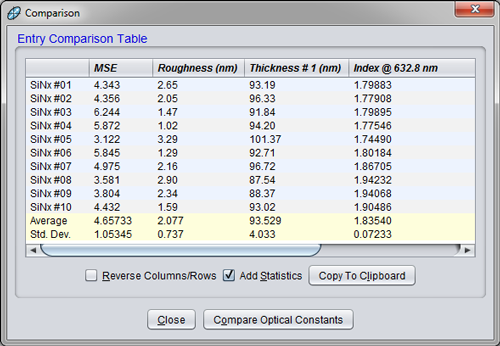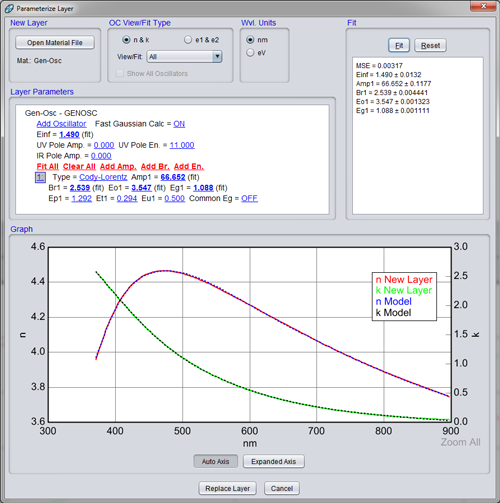Dielectric Films
With fast measurement speed and push-button operation, the alpha 2.0 is ideal for qualifying thin films. Single-layer dielectrics on silicon or glass substrates can be measured in seconds. Log results for easy-to-use comparisons in both graphical and tabular formats.
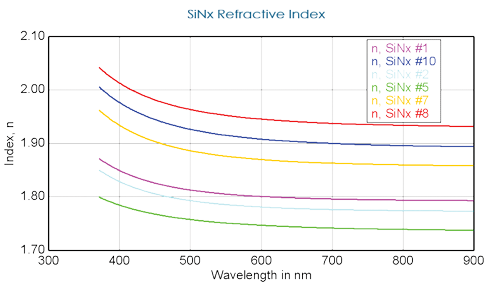
For organic layers on golf, the phase parameter (Delta) shifts downward with increasing thickness.
Self-Assembled Monolayers
Phase information of a spectroscopic ellipsometry measurement is highly sensitive to very
thin films (<10nm). Self-assembled monolayers can be assessed and quickly compared using the alpha 2.0.
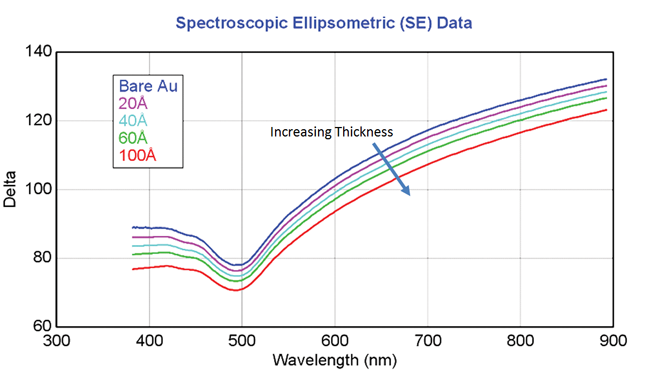
For organic layers on gold, the phase parameter (Delta) shifts downward with increasing thickness.
Absorbing Films
Advanced models provide quick and efficient fits for a wide variety of materials you may encounter.
Materials• a-Si |
Models• Lorentz |
Coating on Glass
Patented technology allows accurate measurements on any substrate: metal, semiconductor, or glass. On transparent substrates, the alpha 2.0 measures depolarization to correct for light returning from the backside of the substrate. This unwanted light can confuse other ellipsometers, but the alpha 2.0 ensures accurate optical constants.
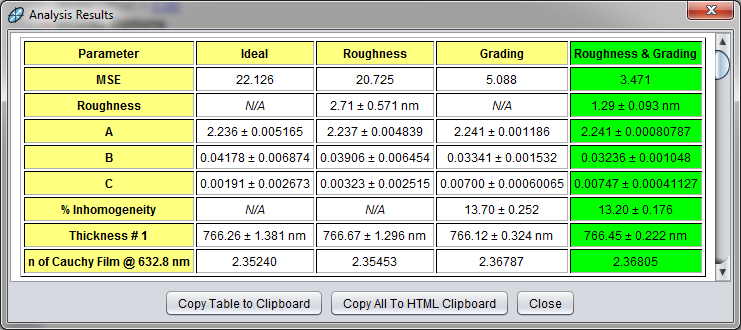
The high sensitivity of alpha 2.0 technology provides microstructural details that you cannot get from Reflectance measurements. Here a thin film of Titanium Dioxide is measured with the alpha-SE and its index is found to vary between the substrate and surface. A graded model best describes this sample.

